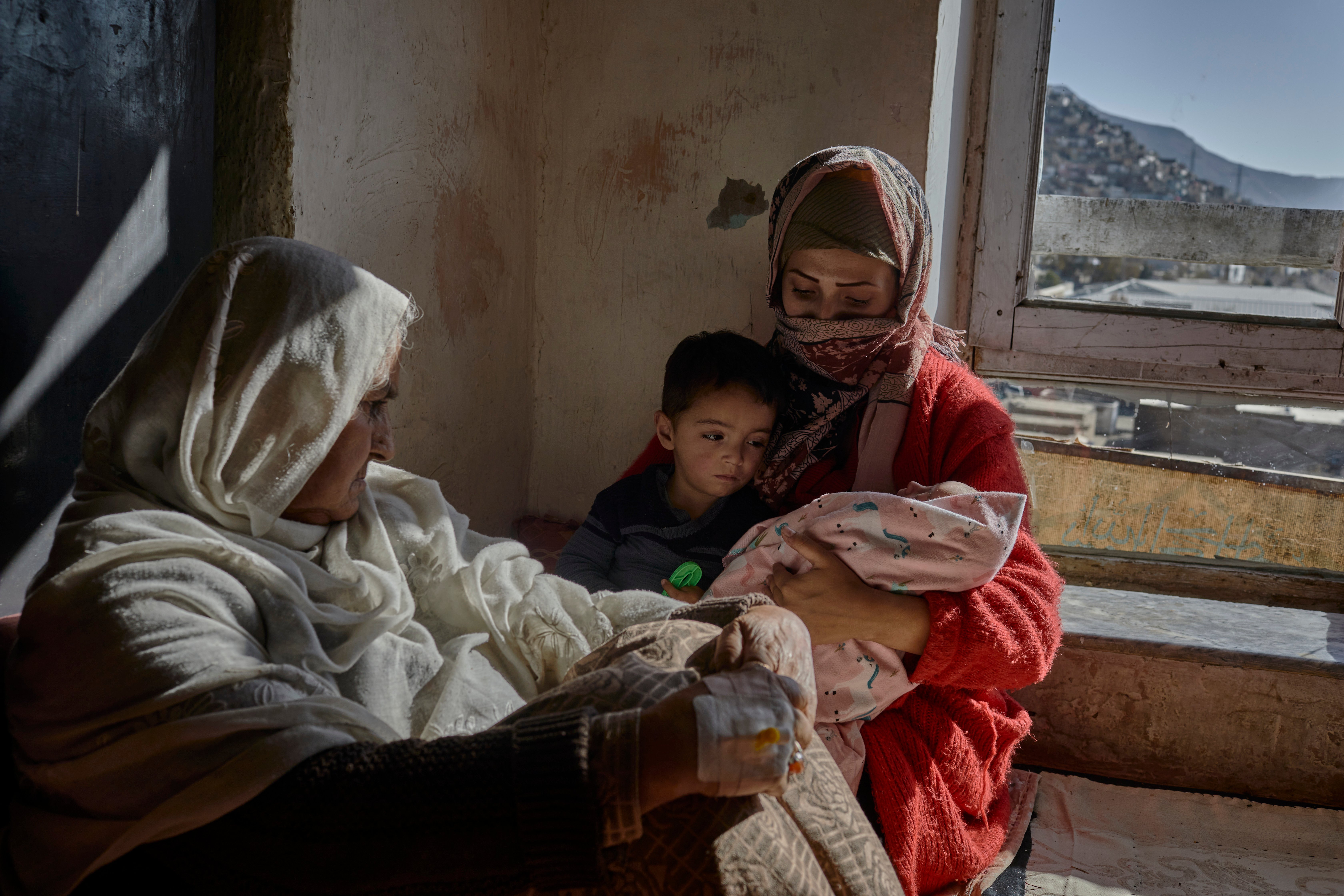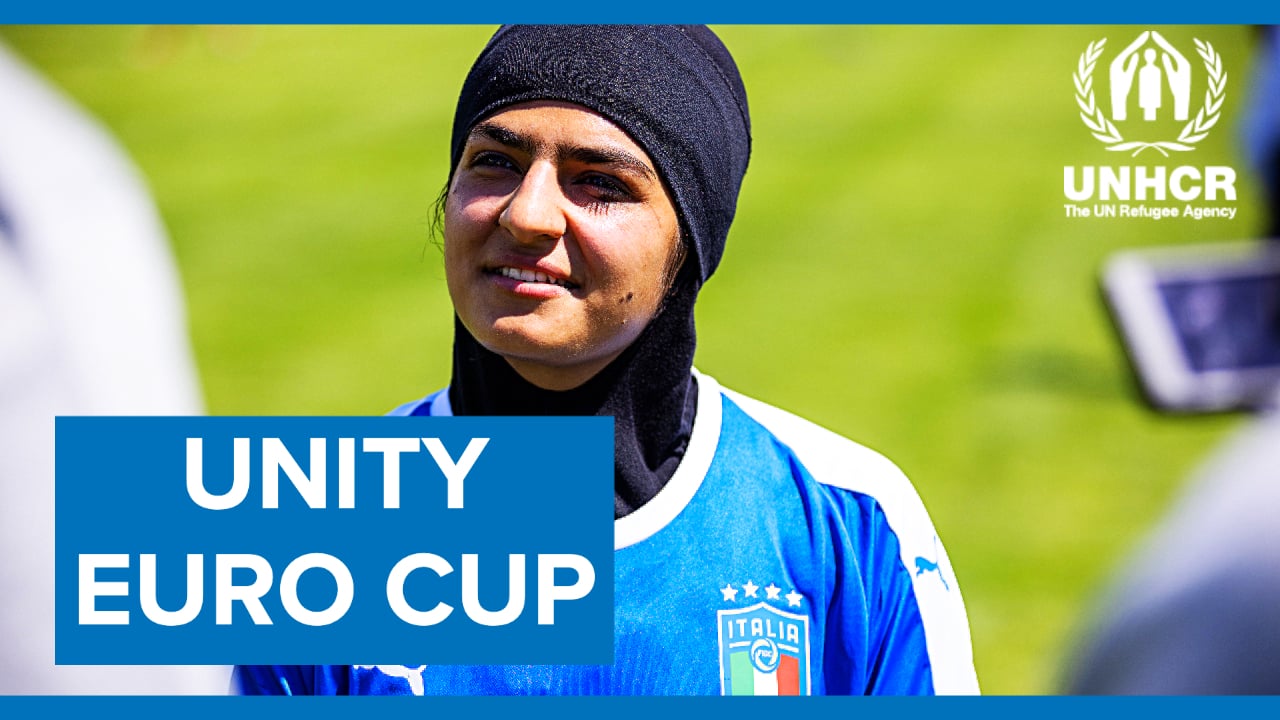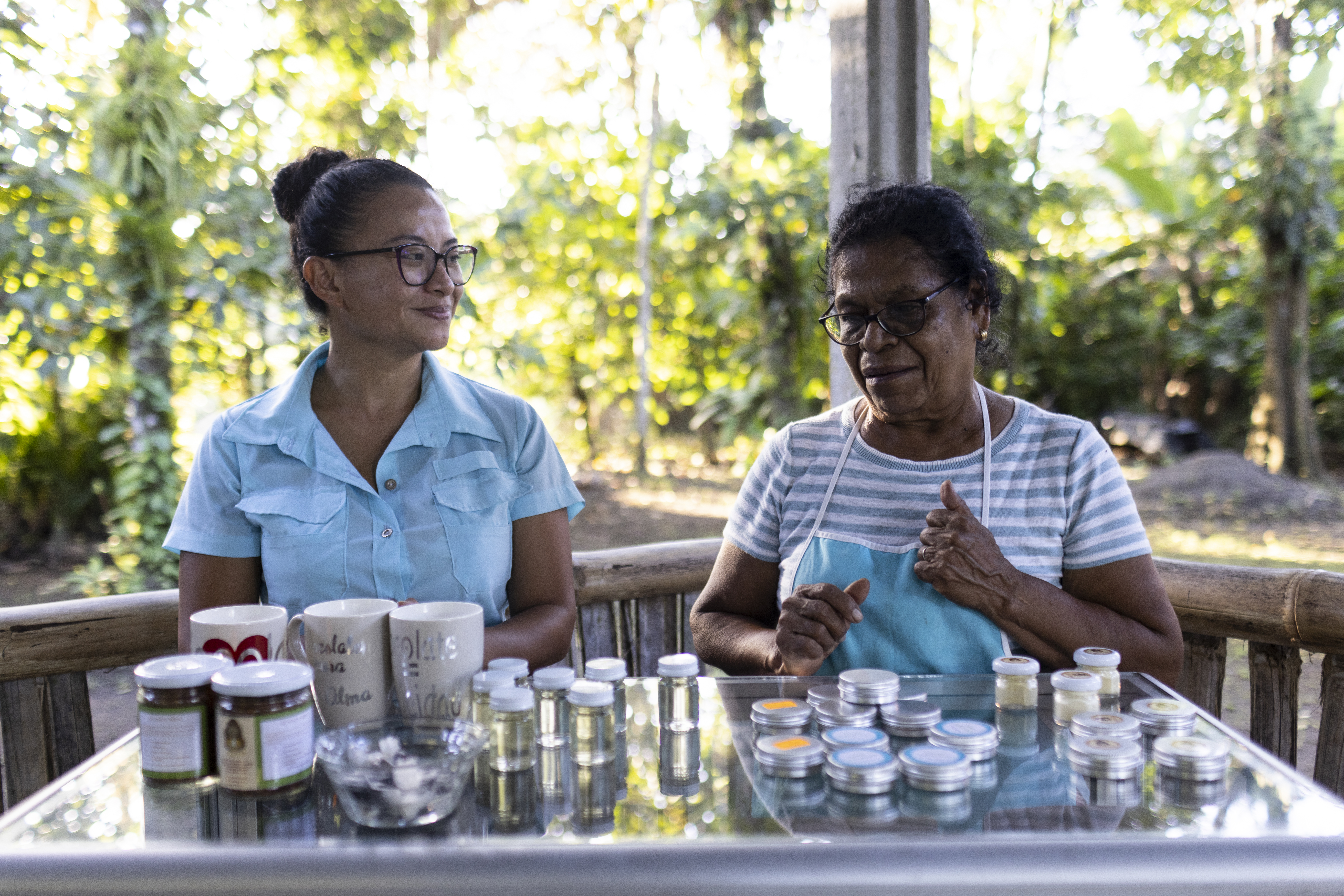UNHCR chief Guterres marks International Women's Day with pledge to combat gender-based violence
UNHCR chief Guterres marks International Women's Day with pledge to combat gender-based violence

GENEVA, March 8 (UNHCR) - UN High Commissioner for Refugees António Guterres marked International Women's Day here on Thursday by announcing concrete support for measures aimed at ending impunity for violence against females and reaffirming UNHCR's commitment to the empowerment of women.
"International Women's Day is a welcome opportunity to express our commitment to prioritising women's and girl's protection risks and support gender equality so that displaced women and girls can live in safety and dignity," he said in a special message to staff.
Guterres, noting the year's theme of "Ending Impunity for Violence against Women and Girls," said UNHCR was joining nine sister UN agencies to take concerted action against sexual violence in conflict and post-conflict situations. "The Stop Rape Now campaign is being launched this week with events in Nairobi, Geneva and New York," he said.
The initiative gathers UNHCR with the Department of Peacekeeping Operations, the Office for the Coordination of Humanitarian Affairs, the Office of the High Commissioner for Human Rights, the United Nations Development Programme (UNDP), the United Nations Population Fund (UNFPA), the UN Children's Fund (UNICEF), the UN Development Fund for Women (UNIFEM), the World Food Programme (WFP), and the World Health Organisation (WHO).
Guterres also revealed that the refugee agency would be providing extra funds aimed at helping females at risk of abuse. "I have allocated an additional US$3.7 million to special projects to prevent and address sexual and gender based violence," the High Commissioner said.
"These projects focus on providing direct assistance to refugee women and girls in an effort to improve the delivery of response services while also taking steps to prevent their exposure to violence and exploitation," he added, while noting that this priority allocation would be increased to US$5 million in 2008 to ensure sustainability of the projects.
"I hope these actions will make it absolutely clear that prevention and response to SGBV [sexual and gender-based violence] is a UNHCR priority; we must demonstrate this in our daily work, together with progress in our efforts to achieve gender equality which is a prerequisite for ending violence against women," he said.
Guterres also reaffirmed UNHCR's commitment to women's empowerment, starting within the agency's own backyard. "Today, I have the pleasure to introduce our new Policy on Achieving Gender Equity in UNHCR Staffing. Our goal is to achieve gender parity at all professional grades by 2010, the revised target established by the Secretary-General," he said.
Meanwhile, UNHCR offices around the world were celebrating International Women's Day with a wide range of activities. In Geneva's Palais des Nations, the UN's European headquarters, different UN agencies were due to take part in a panel discussion entitled, "The UN working together to respond to sexual violence in conflict."
The refugee agency was hosting an exhibition in its main lobby of literature and photographs linked to the theme of gender-based violence. "Stop sexual and gender-based violence. Work to empower women," said a poster.
In Madrid, UNHCR is attending a meeting of Spanish and African female leaders. Other participants include Spain's Deputy Prime Minister Maria Teresa De La Vega, Liberian President Ellen Johnson-Sirleaf, Mozambique Prime Minister Luisa Días Diogo and 2004 Nobel Peace Prize laureate, Wangari Maathai.
Some 300 women from 45 countries are participating in the two-day meeting, which was opened on Wednesday by Spain's Queen Sofia. The goal of the meeting is for leading figures in politics, economics, education, health and culture to share experiences and look at ways to end discrimination.
In Nairobi, UNHCR helped launch the Stop Rape Now campaign at a ceremony on the eve of International Women's Day. Dennis McNamara, special adviser to the UN refugee agency on internally displaced people, condemned the suffering of women and girls in Sudan's Darfur region and called for more action from the United Nations, donors and the host government to end the violence.
"Three years on, despite the efforts of dedicated agencies, the women and girls of Darfur today remain the largely unprotected victims of rape and sexual abuse," he said. "To the biggest humanitarian operation in the world today, Darfur, this is surely a major shame."
International Women's Day events were organised in various refugee camps around the region. Song, dance, dramatised poetry and speeches characterised many of the events organised in Kenya, Tanzania, Ethiopia and Burundi.
In Sudan's West Darfur region, UNHCR and its partners were on Thursday continuing their valuable work providing counselling and psycho-social support to internally displaced women and refugees in camps and local communities.
Women usually gather in social centres twice a week for joint activities, including literacy classes, awareness-raising sessions and the making of handicrafts for sale in local markets. Professional counsellors are available to talk to them on an individual basis.
To date, some 80,000 women have benefited from the service, contributing to a gradual change in the perception amongst displaced men and women about sexual violence in conflict. "It is good for us to come here, sit together and talk," said Hawa, an elderly lady in Mornei camp. "We all know what we went through. It gives us comfort to share these experiences," she told UNHCR on the eve of International Women's Day.
"This centre is vital for us," Hawa's friend, Fatma added. "Some people may think that we just need food and water to survive. But what we are doing here is also a very important kind of assistance."
Displaced women who used the centres have said they start to feel less ostracised within their community and that being the victim of sexual violence is no longer considered their fault. The centres have empowered them and given them hope.









